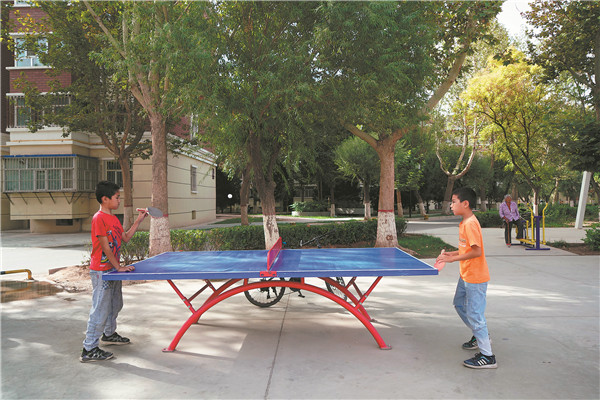
Xerzat Abduwali (left), 13, plays table tennis with his 10-year-old brother Erxat for about three hours every day in Donghu community. [Photo by Xu Lin/China Daily]
Community ensures residents enjoy a variety of activities and are fully cared for, report Xu Lin and Mao Weihua in Kashgar, Xinjiang.
Youngsters play basketball and a father teaches his daughter badminton as duos of different ages play table tennis, and seniors relax in wheelchairs and on benches, soaking up the sun in Kashgar's Donghu community.
"Living here makes it easy to play table tennis. Our greatest wish is to become professional players someday," says 13-year-old Xerzat Abduwali. The boy of the Uygur ethnic group practices with his 10-year-old brother Erxat for about three hours every day.
Donghu's public facilities and vibrant atmosphere also attract residents from neighboring areas, among them 75-year-old Wang Xiuzhen. She enjoys playing table tennis with her 76-year-old husband for about an hour and a half in the community every day.
"I picked up this hobby when I was young. Now, I have plenty of time to play again, and it keeps me healthy," Wang says.
This is a common scene at Donghu (meaning "east lake") community in Kashgar, the Xinjiang Uygur autonomous region.
Six ethnic groups — Hui, Tajik, Kazak, Mongolian, Uygur and Han — live together in the community, which has 2,600 households consisting of 6,201 residents, 41 percent of whom are elderly, and 21 percent children.
A pilot project that started early last year, Donghu has become Kashgar's first integrated community. It aims to create a 15-minute "living circle" for residents of all ages, a walkable radius within which they can meet daily needs, such as shopping, education, healthcare and entertainment.
"Residents of different ethnic groups live here together like family," says Zhang Xiaozhen, director of the residents committee. "We focus on sincerely serving the needs of the children and the elderly, who make up the majority of our residents."
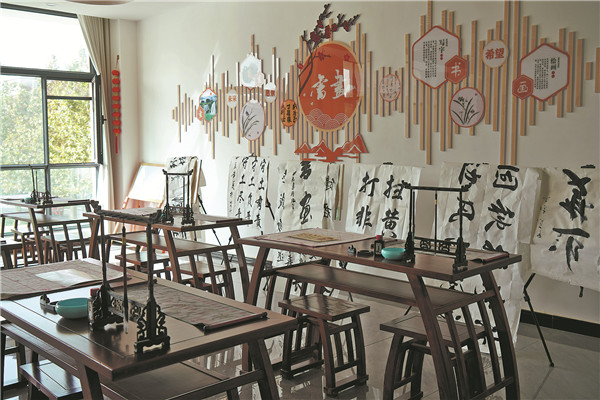
A room in Donghu community's civic center where residents can practice calligraphy. [Photo by Xu Lin/China Daily]
In the Party service center, which is also the community's civic center, residents can make use of function rooms, activity spaces and facilities free of charge.
Community-based elderly care is one of Donghu's main characteristics.
The elderly can enjoy nutritional meals for an affordable price in the canteen, and those aged 90 and above eat for free. They are provided with health checkups, can see a doctor, and buy medicines at a discount in the civic center's clinic, and minor illnesses are treated in the community.
Donghu also frequently hosts activities the elderly enjoy, like dancing, singing and calligraphy. The most popular offering is the card and board game room, which is bustling every afternoon.
Residents are encouraged to become more involved in community events by earning points for taking part in volunteer activities, which they can then exchange for daily necessities.
There are a range of activities, from free haircuts for the elderly, to chatting with them. The events are also targeted at children, who can avail themselves of after-school tutoring and take part in extracurricular training activities.
"These initiatives not only improve the daily lives of residents, but also strengthen the bonds between neighbors of different ethnic groups. They can share ideas and get to know each other better by interacting," Zhang says.
When Mamatjan Bilal, a member of the Uygur ethnic group, moved to the community three years ago, he quickly became friends with his neighbor Liu Han after they started playing basketball together.
"Our families often dine together and sometimes make dumplings. Our wives and preschool daughters share close friendships as well," he says.
Guo Yukun has lived in the community for over a decade. The 58-year-old often takes her 3-year-old grandson to the civic center's indoor playground.
"The community's environment and infrastructure have improved greatly over the past year. This has made life better for seniors, and has increased our happiness through a variety of engaging activities," Guo says.
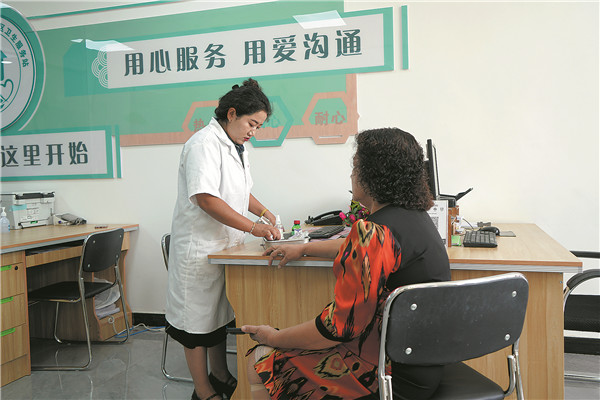
Donghu, the first integrated community in Kashgar, the Xinjiang Uygur autonomous region, meets local residents' needs, such as elderly care, child care, wellness and entertainment. [Photo by Xu Lin/China Daily]
She believes that community-based elderly care is both convenient and enriching, and it allows her to socialize with peers of different ethnic groups, and pursue her hobbies.
"Community-based elderly care helps ease the burden on the younger generation, who have to concentrate on building a career. It also alleviates the concerns of those working in other cities about their parents," Wang says.
Residents can seek help from 90 volunteers from Donghu and other neighboring communities. The volunteers are divided into nine groups based on their expertise, which includes legal advocacy and psychological counseling.
One of them is Wei Fang, a 42-year-old associate professor at the School of Music and Dance at Kashi University. She and her students often sing for the residents.
"Everyone needs cultural and emotional enrichment in their lives. My students also benefit from the interactions, which allow them to hone their musical skills and improve their artistic appreciation," she says.
"I've learned a lot from these elderly residents, who all excel at their traditional dances. These kinds of cultural exchange activities infuse the community with vitality."
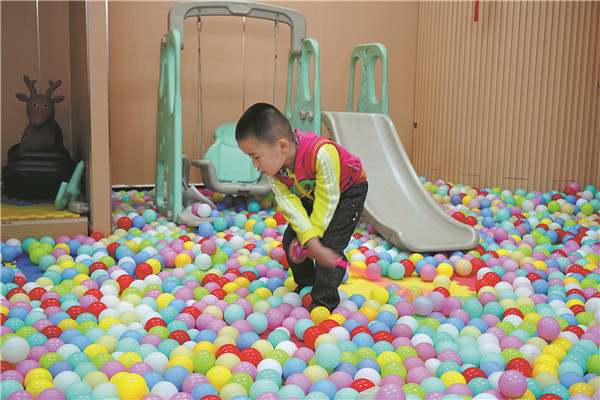
Donghu, the first integrated community in Kashgar, the Xinjiang Uygur autonomous region, meets local residents' needs, such as elderly care, child care, wellness and entertainment. [Photo by Xu Lin/China Daily]
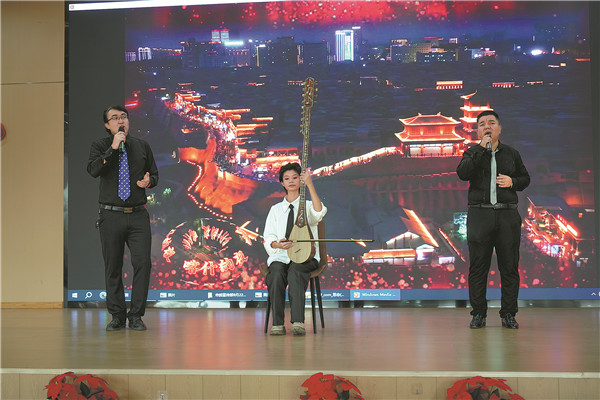
Donghu, the first integrated community in Kashgar, the Xinjiang Uygur autonomous region, meets local residents' needs, such as elderly care, child care, wellness and entertainment. [Photo by Xu Lin/China Daily]
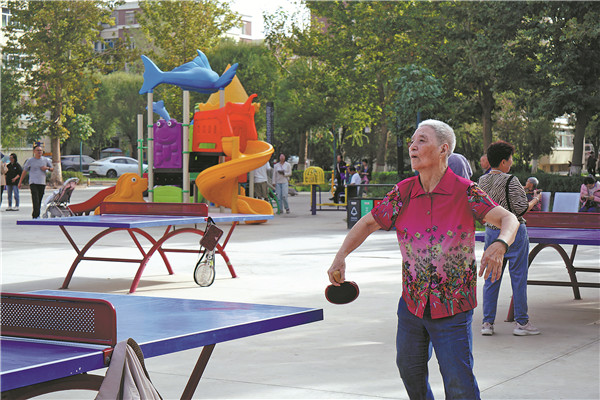
Donghu, the first integrated community in Kashgar, the Xinjiang Uygur autonomous region, meets local residents' needs, such as elderly care, child care, wellness and entertainment. [Photo by Xu Lin/China Daily]